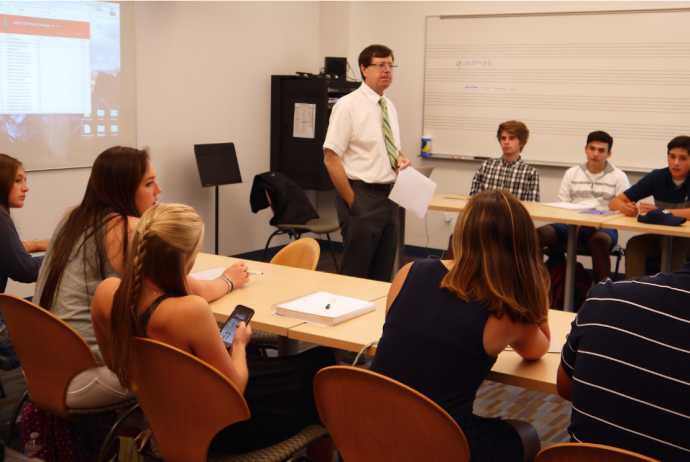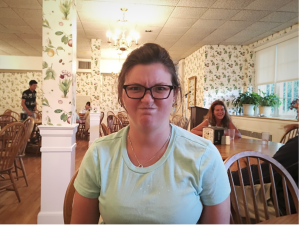By Ms. Miller’s Journalism Class
Concomitant courses are rigid, schedule-binding classes that impede students to take the courses they actually feel passionate about. While some people may be interested in courses such as Art or Music History, the truth is that the vast majority have no particular attraction to them. This creates a lack of interest in class. These classes teach to the test and students are not focused on retaining the information.
Students dislike classes that get in the way of classes they want to take. Supporters of the concomitant schedule say that these required courses help to create a more well-rounded student. Students are coerced into taking these classes. These classes could be revamped to reflect student interest.
Paige Allen 17’ is a “con-comitants” student. She spent her summer before sophomore year taking health and public speaking, and now has to take the last three concomitants her senior year. Allen admitted that the classes were pointless and, with how expensive they are, should not have been required.
Because of the great number of concomitants, these required courses impact everyone’s schedule, especially in the senior year – when students should be able to choose their classes based on interest and to look competitive on college applications. Schedules can be overwhelming with intense AP classes and it can be difficult to plan around classes such as creative spirit, which is only offered one bell.
What about new students? The student body grows every year – in all grade levels, not only freshman. Students who come to Sem in their sophomore, junior, or even senior year are still required to take concomitants that do not transfer over from their previous schools. Justine Marseille 17’, a transfer student, stated that, in coming to Sem, she was “clueless” and did not know which classes she had to or wanted to take. She ended up fitting in art history, music history, and public speaking in one school year. For new students especially, the concomitants do more harm than good.
Making concomitants graduation requirements just adds more stress to students, mentally and financially. Each course over the summer is an extra $700 that is not included in the school year tuition. Boarding for the classes is even more – $3,200. If these classes are required to graduate, why should students have to pay so much extra when their busy schedules during the year don’t permit them to take as many concomitants?
Other schools have similar required courses, such as Scranton Prep, which has a four-year requirement of Religious Education. Although, according to its website, this Catholic school reasons that the courses are designed to help students to “recognize, discuss, and fulfill their spiritual and religious needs,” many students dislike being forced to take them. “The main thing though is that everyone is required to take four years of theology no matter what. Most people don’t have a problem with it[,] but there are a few atheists or people of a different religion that would prefer not to take them.” Wyoming Seminary students feel similarly about our required Bible course: that instead of taking it, a study of world religions and beliefs would be more practical at a school that boasts its diverse population.
Instead of being required classes, concomitants should be fit into other classes. For example; health could be incorporated into biology, public speaking into English classes, art and music history into history classes. Ms. Ellen Hughes, a teacher as well as Sem alumna, shared these ideas with us in an interview. She hated concomitants during her time in school and could attest to the fact that they were not very useful after graduation.
Jeff Rickey, the vice president and dean of admissions and financial aid at St. Lawrence University, stated in an interview with the New York Times, colleges are more drawn to students choosing schedules based around their interest. The required courses do not prove Wyoming Seminary students to be as competitive or passionate about subjects as they could be by challenging themselves with electives that they can choose based on their interests.

